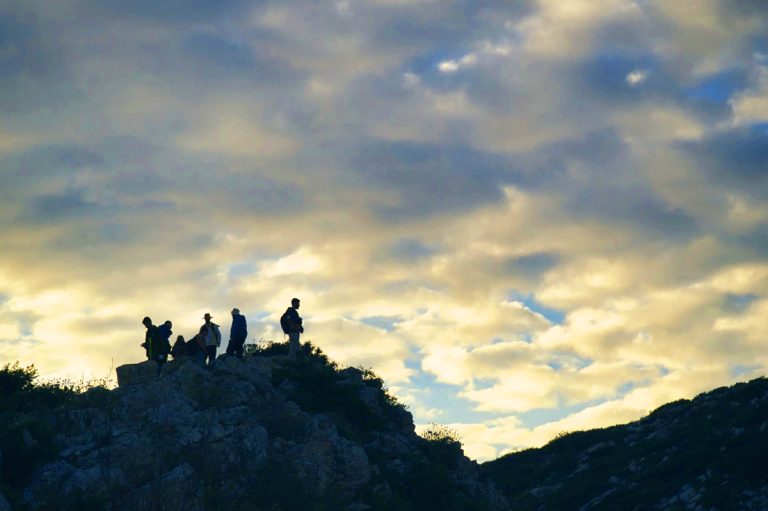Seminar on Outdoor Risk Management Research Given To Outdoor-Based Nonprofit Sparks Lively Conversation

Viristar provided a workshop entitled “The Science of Safety: What the Research Says About Risk Management Outdoors” to members of the nonprofit group The Mountaineers on January 11, 2023. The event reviewed 100 years of safety science, and addressed how volunteer instructors and trip leaders with The Mountaineers can improve safety outcomes on the experiences they offer to members of The Mountaineers community.
The seminar, part of The Mountaineers’ Leadership Development Series of continuing education opportunities for its volunteer leaders, introduced models of incident causation, including AcciMap and the Risk Domains model. The presentation emphasized how contemporary, high-quality theoretical models incorporate complex socio-technical systems theory, and ways in which volunteer instructors and trip leaders can incorporate systems thinking in how they organize and conduct the trips and program offerings they provide to members of the Mountaineers community.
The presentation touched on how Just Culture can help The Mountaineers address underlying causes of incidents, a systems-informed model for incident reporting, and how the global climate crisis affects mountaineering safety.
Human factors in incident causation were a focus of the presentation, whose audience of close to 50 Mountaineers members instruct and lead outdoor trips.
The presentation discussed how human factors include interpersonal skills such as communication, collaboration, and managing group dynamics, as well as cognitive skills around decision-making and problem-solving.
Cognitive limitations, including cognitive bias and cognitive shortcuts (heuristics), were covered.
Although there are no proven ways to completely eliminate their effects, some techniques were mentioned. These approaches include rules (policies and procedures, required checklists, decision algorithms, and decision points), group dynamics management, and use of unbiased external viewpoints.
The presentation concluded with a case study of canyon hiking incident in New Zealand. Although the leader of that trip might superficially appear to have made poor judgments, the underlying causes that led to those decisions—such as a lack of training provided by the organization, missteps by program administrators, an uncorrected error made by the national weather service, and an absence of required outdoor safety standards—illuminated the many contributing factors to the incident.
This mimics a recent paddleboarding incident in Wales, where the decision by a trip leader to initiate a high-risk water rescue ending in his drowning is seen not as primarily a result of poor trip leader judgment but the tragic end result of a series of lapses by government, outdoor sport governing bodies, outdoor equipment manufacturers/retailers, a local dam-owning water utility, and others operating in the complex system of led outdoor activities.
Participants in the seminar heard that the research on incident causation suggests that person-centric controls are considered weak. Instead, actions at the level of government, outdoor associations, and program administration, along with decisions of field leaders, all need to be considered in order to reduce the likelihood and severity of incidents so far as is reasonably practicable.
Participants Share Their Expertise and Experience
Participants contributed to a lively conversation about safety and the out-of-doors. One attendee, a safety expert with Boeing, raised the topic of using Process Failure Modes and Effects Analysis to mitigate risk; another initiated a discussion of benefits and weaknesses of the “Five Whys” method of incident analysis. A third reminded participants how easy it is in hindsight to see a trail of decisions that led to an incident, yet how difficult that is to discern in advance.
A member of The Mountaineers’ Safety Committee emphasized how it is important for Mountaineers instructors and trip leaders to complete and submit incident reports, including near miss reports, to help everyone learn and to improve safety across the organization.
A theme from participant comments was how important it is to keep in mind that there are often multiple contributing factors to incidents, and that assertions like “Climbers themselves are responsible for nearly all climbing accidents” is not supported by the science behind contemporary models of incident causation.
Opportunity Made Available Through Mountaineers’ Commitment to Safety and Quality
The Mountaineers invests in helping its instructors and leaders provide high-quality outdoor adventures to the nonprofit’s 15,000 active members in the USA’s Pacific Northwest.
Michelle Song, the Mountaineers’ Volunteer Development Manager, worked hard to organize the seminar and put together a series of other resources for the group’s volunteer leaders and instructors. The seminar would not have been possible without Michelle’s leadership and excellent organizational skills.
The Mountaineers, founded in 1906, is a volunteer-led organization of outdoor enthusiasts with a mission to enrich the community by helping people explore, conserve, learn about, and enjoy the lands and waters of the Pacific Northwest and beyond.
Viristar will be providing a second seminar, “Incorporating Environmental Education Into Mountaineers Trips,” in February. The workshop is open to Mountaineers members and the public.
Mountaineers members and anyone interested in outdoor safety are also invited to read the book Risk Management for Outdoor Programs: A Guide to Safety in Outdoor Education, Recreation and Adventure.
Individuals who manage adventure, travel, wilderness or experiential programs are also encouraged to consider participating in Viristar’s acclaimed 40-hour online training, Risk Management for Outdoor Programs.



